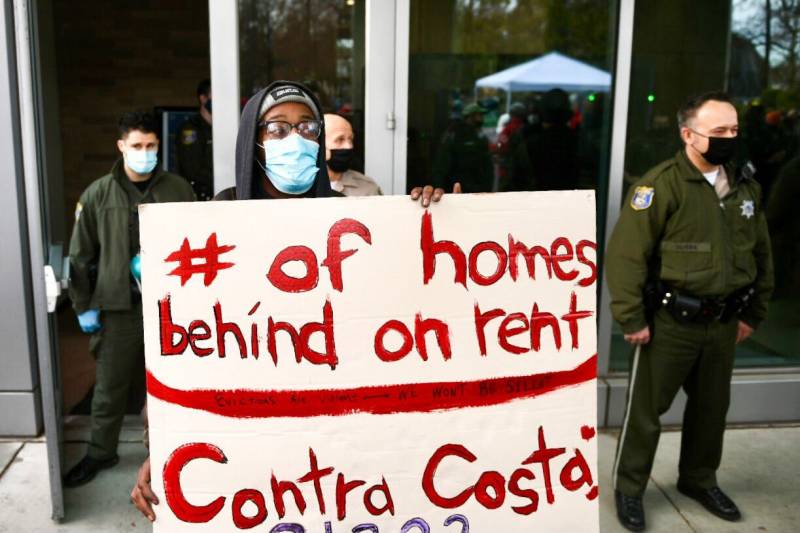Some tenants' attorneys say a blanket eviction ban is necessary to prevent further housing insecurity or homelessness.
“We don’t want to put more families out on the street right now,” said Anne Tamiko Omura, executive director of the Eviction Defense Center, which offers legal services to tenants in Alameda and parts of Contra Costa counties. She said 98% of her clients in Richmond facing eviction are people of color, and are mostly Black and Latino families.
At Tuesday's meeting, Tamiko Omura urged the Richmond City Council to consider pausing unlawful detainers and sheriff lockouts from going forward while the coronavirus pandemic is still a threat.
“We are begging you," she said. "If Richmond doesn't do anything, we're just going to continue to see more of the same: predominantly low-income people of color being pushed into homelessness.”
Council member Eduardo Martinez suggested including additional protections for property owners who have not received rent and may be at risk of foreclosure.
"This is an issue that's much larger than just tenants," Martinez said.
Richmond Mayor Tom Butt cast the only no vote, arguing that the city’s rent control and the state eviction protections already do enough to shield tenants.
